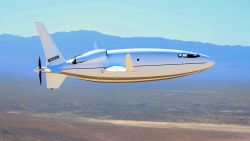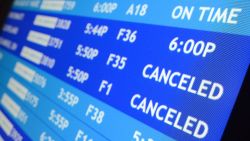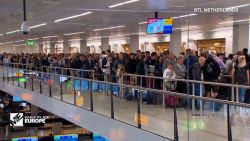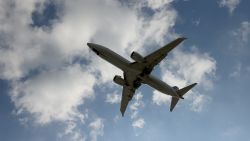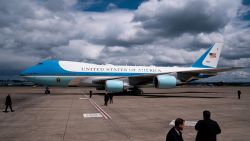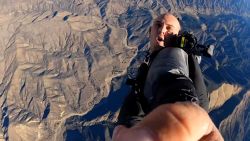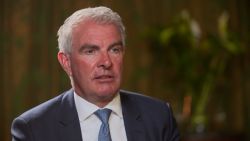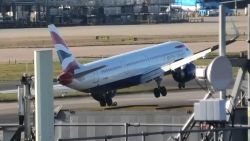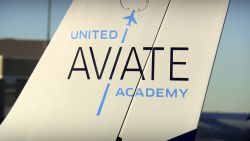Boeing’s earnings fell 21% in the first three months of the year because of the crisis that grounded its bestselling 737 Max jet.
Boeing's 737 MAX problems
The aircraft maker reported both lower revenue and profits compared to a year ago. Before the fatal flight that led to the jet being grounded and further deliveries of it halted, the company had been expected to report improved results in the quarter.
Boeing said it could no longer stand behind its earlier outlook, in which it said results would improve in 2019.
“Due to the uncertainty of the timing and conditions surrounding return to service of the 737 Max fleet, new guidance will be issued at a future date,” it said.
It also suspended its share repurchase program. It had repurchased 6.1 million shares for $2.3 billion in the quarter — all of those purchases were made before the grounding. It said it will reconsider buybacks once the 737 Max returns to service.
How much the crisis cost
Boeing didn’t break out the complete cost of its results from the 737 Max crisis, but in a presentation to investors it said it had booked a charge related to fixing the plane’s problems.
The company said the cost to make the 737 Max was at least $1 billion higher in the the quarter because of its work on solving the issue.
The slowdown in the plane’s production reduces how efficiently Boeing can build the planes, because the fixed costs of building the planes can’t be spread across as many as aircraft. Boeing has continued to build the 737 Max even though it has halted deliveries. But it has cut the pace of production from 52 a month down to 42. It also faces some costs related to storing the jets it is building but unable to deliver.
Boeing executives said they cannot yet say when the 737 Max grounding is likely to end, or when it can again begin deliveries.
“We will continue to apply whatever resources are required to return the 737 Max safely into the fleet and take the time necessary to do so,” said Chief Financial Officer Greg Smith.
Where is the fix?
The company said it is making progress in devising a software fix for the automatic safety feature on the 737 Max. That feature is the focus of investigations into two fatal crashes in the last six months.
In October, the pilots of a Lion Air jet in Indonesia apparently had problems overcoming a safety feature that forced the nose of the plane lower before it crashed. An Ethiopian Airlines jet on March 10 encountered a similar issue. The second crash prompted the jets’ grounding on March 14.
“Across the company, we are focused on safety, returning the 737 Max to service, and earning and re-earning the trust and confidence of customers, regulators and the flying public,” Boeing CEO Dennis Muilenburg said in a statement.
Boeing said it has performed more than 135 test flights using the new software as part of the process to get the fix certified by aviation authorities. Muilenburg said he has personally flown on two of those test flights.
Muilenburg said Boeing has been working with its airline customers and especially the 737 Max pilots to ensure that they are confident that the planes will be safe. He said so far the feedback has been positive. But he admitted that work will need to be done to win back the confidence of airline passengers.
“We have to earn and re-earn the trust of the flying public,” he said. “And that’s work ahead of us and we take that very seriously.”
Muilenburg said he couldn’t comment on the ongoing investigation, but said he is confident there was no slip or gap in the certification process by Boeing or aviation authorities that led to the crashes. He said he remains confident that the software fix being worked on will solve the problem.
“We’re very confident that when the fleet comes back up, the Max will be one of the safest airplanes ever to fly,” he said.
Although analysts had been expecting better results in the quarter ahead of the Ethiopian crash, they had lowered forecasts in recent weeks.
But Boeing clearly has significant resources to weather the financial costs of the crisis. It said its backlog of orders stands at $487 billion, including for more than 5,600 commercial jets. And it has $7.7 billion in cash on hand as of the end of March.
Shares of Boeing (BA) were slightly higher in early trading following the report.




